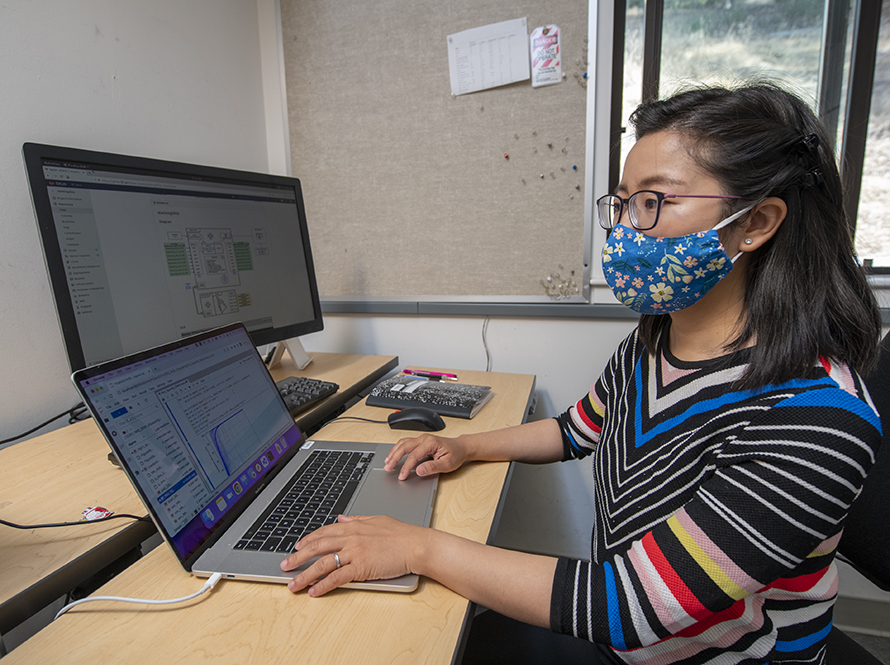Dan joined the Berkeley Lab in 2019. She contributes to the Lab’s Advanced Light Source Upgrade project and leads cutting-edge work with colleagues in the BACI program and the lab’s Engineering Division, which applies machine learning techniques to fiber laser controls. She also works with the Lab’s BELLA Center team to apply these techniques to fiber laser modeling and laser pointing stabilization. Dan has a Ph.D. in accelerator physics from Tsinghua University in Beijing, China.
What fueled your interest in particle accelerators and their applications?
The challenge of problem-solving through physics has always driven my passion, particularly in understanding the physics behind the data. This approach has been essential in using machine learning to address complex issues, allowing me to combine rigorous physical insight with practical solutions.
What attracted you to join ATAP’s BACI Program?

Dan Wang researches machine learning techniques for controlling particle accelerator beams. Thor Swift/Berkeley Lab.
The BACI program offers a unique chance to work on real-world accelerator challenges, which I find deeply fulfilling. I enjoy tackling these problems from the ground up—starting with literature reviews, developing physics-based models, closing loops in simulations, and working with the Lab’s Engineering Division to bring these ideas to life. BACI’s strong connections with this division and its longstanding role in delivering control and instrumentation solutions to the accelerator community make it a fantastic place for learning and growth.
How have you found working at the Lab, and what research are you working on?
Working at Berkeley Lab is a very rewarding experience. The environment is incredibly supportive of diverse ideas, and the organization’s commitment to inclusion and collaboration is evident. I greatly appreciate the teams I’ve worked with and look forward to collaborating with more of my colleagues at the Lab and continuing to contribute to this inspiring atmosphere.
For more information on ATAP News articles, contact caw@lbl.gov.
